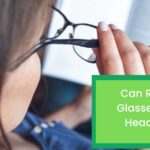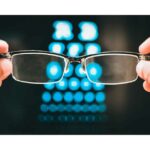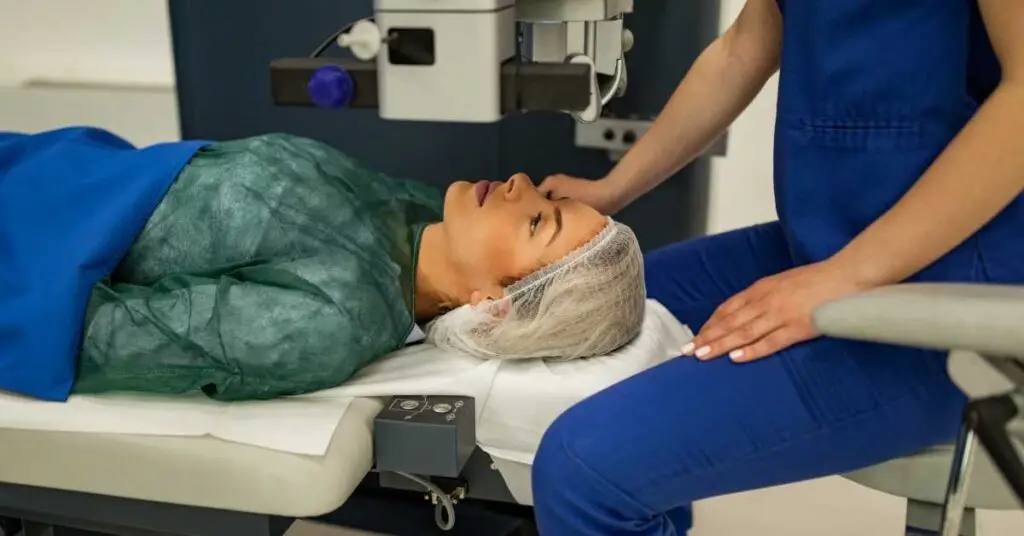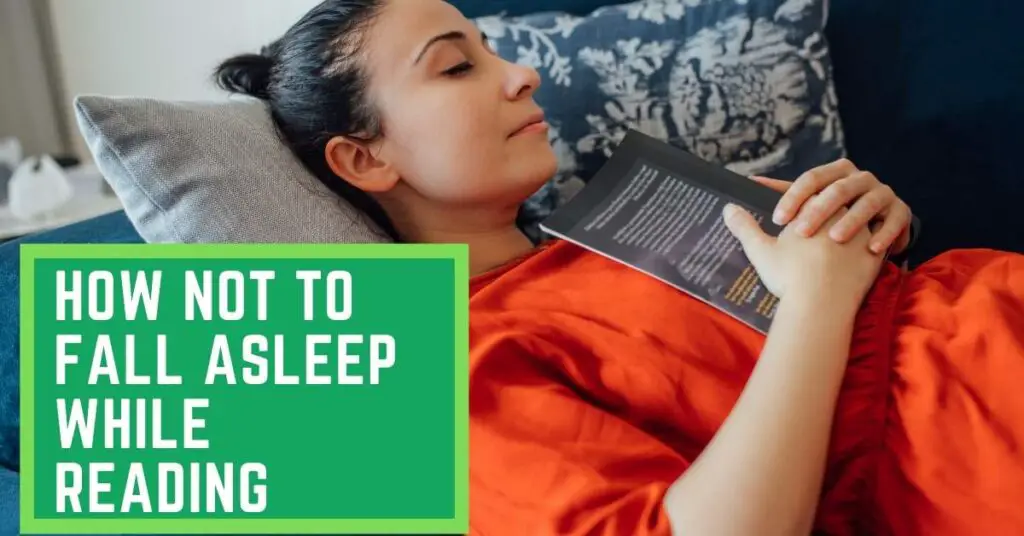Yes, you can use reading glasses for the computer. You may need to adjust the prescription of your glasses, though, because close work on a computer screen can be more demanding on your eyes than reading from a book or other printed material.
If you have a mild prescription, you may be able to get away with using the same glasses for both activities, but if your prescription is stronger, you’ll likely need to have two pairs of glasses—one for reading and one for the computer. Ask your eye doctor to help you choose the right prescription and type of glasses for computer use.
Suppose you are considering using reading glasses for computer work, then it is important to test them out first. Try wearing them while you are working on the computer to see if they help or hinder your ability to see the screen.
Also, keep in mind that not all reading glasses are created equal. You may need a different strength of glasses for computer work than you do for reading print material.
Some people find that they can use reading glasses for computer work, while others find that the glasses make it more difficult to see the screen. Ultimately, only you can decide if reading glasses are right for you when it comes to using them for computer work.
Try them out and see how they go. If you find that they make it easier to see the screen, then continue using them. If you find that they are not helpful, or if they make your eyes feel tired, then discontinue their use.
Task of Computer Glasses
01. Blue Light Filtration: Blue light is a type of light that is emitted from electronic devices like computers, smartphones, and tablets. It is part of the visible spectrum of light. Blue light is a type of electromagnetic radiation with a wavelength in the range of 400-500 nm.
Computer glasses filter blue light in order to reduce eye fatigue and protect your eyes from the negative effects of blue light exposure. They usually have amber-tinted lenses that block out around 70% of blue light.
This helps to improve visual comfort while using electronic devices and can also help to reduce the risk of long-term damage. By filtering out blue light, computer glasses improve your sleep quality.
02. Eye Strain: Eye strain is a condition that can be caused by staring at a computer screen for too long. Symptoms of eye strain include headaches, fatigue, and blurry vision.
Computer glasses are designed to reduce eye strain by helping people focus their eyes on the screen more easily. The glasses work by filtering out blue light, which can make it easier for people to see the screen more clearly.
Some studies suggest that computer glasses can improve symptoms of eye strain, but more research is needed to confirm these results. If you’re experiencing symptoms of eye strain, it’s important to consult with an ophthalmologist or other medical professional to determine the best course of treatment.
03. Reduce short-term Eye Weaknesses: There are a lot of different factors that can contribute to eye weakness, and computer glasses are designed to help reduce the strain on your eyes that can come from extended screen time.
Computer glasses typically have a blue light filter built-in, which can help reduce the harmful effects of blue light exposure. They also usually have a slightly yellow tint to them, which can help improve contrast and reduce eye strain.
And finally, they often have a magnifying effect to help you see the screen more clearly. All of these factors together can help reduce eye fatigue and discomfort and hopefully prevent any long-term damage to your vision.
When to start using Computer Glasses?
When to start using computer glasses is ultimately depends on how much time you spend staring at screens and whether or not you’re experiencing any symptoms like eyestrain or headaches.
If you find yourself spending a lot of time in front of monitors – for work, for leisure, or both – it might be worth considering computer glasses. These are specialized glasses that have lenses with a blue light filter, which can help reduce strain on the eyes.
Of course, you don’t necessarily need to start wearing computer glasses as soon as you start using screens. If your eyes are feeling fine, there’s no need to add another piece of eyewear to your collection. However, if you’re starting to experience any symptoms of eye strain, it might be time to give computer glasses a try.
Task of Reading Glasses
01. Maximize Focus of Small Prints: Yes, reading glasses help to magnify small prints and improve focus. The lens in a reading glass is designed to correct for near-sightedness and make objects appear clearer. If you are having difficulty seeing small prints, it’s likely that you could benefit from using reading glasses.
There are a few reasons why reading glasses can help you see small print more clearly. First, reading glasses magnify the image of the text, making it appear larger and easier to see. Second, reading glasses help stabilize your eyesight, which can be especially helpful when focusing on small print.
And finally, reading glasses reduce eye fatigue by providing a wider field of vision for your eyes to take in the text. Ultimately, all of these factors combine to make reading glasses an invaluable tool for anyone who struggles with seeing small print.
02. Reduce short-term Eye Weaknesses: You’re absolutely right – reading glasses can help reduce eye weaknesses that can occur over time.
We often don’t realize how much strain we put on our eyes when we’re constantly looking at screens or reading the fine print. Wearing reading glasses can help alleviate some of that strain and prevent our eyes from getting too weak.
However, it’s important to note that reading glasses won’t completely eliminate eye weakness. If you’re noticing your eyesight getting worse over time, it’s always best to consult a doctor or optometrist to see if there are any other underlying issues.
Sometimes, eye weakness can be a sign of a bigger problem like macular degeneration or glaucoma. So it’s always best to get your eyes checked regularly, even if you’re using reading glasses.
When to start using Reading Glasses?
Again, this really depends on each individual person. If you’re starting to experience any symptoms of eye strain, it might be time to give reading glasses a try.
You might also want to consider using reading glasses if you spend a lot of time reading or looking at screens. If your job requires you to spend hours in front of a computer, it’s a good idea to start using reading glasses to help reduce the strain on your eyes.
In general, most people need reading glasses when they reach a certain age, usually around 40-50 years old. However, some people may need them earlier or later, depending on their individual eyesight. If you have difficulty reading small text or seeing close up, you should talk to your optometrist about getting a pair of reading glasses.
Ultimately, the best time to start using reading glasses is when you feel like they could benefit you. If you’re not experiencing any problems with your eyesight, there’s no need to start using reading glasses. But if you feel like they could help, there’s no harm in giving them a try.
Reading Glasses Vs Computer Glasses – Key Differences
There are a few key differences between reading glasses and computer glasses. The main one is that computer glasses have a tint to help reduce eye fatigue.
This is because when you’re looking at a computer screen, the light is brighter than any other object you’re likely to look at during the day. So, wearing computer glasses can help your eyes adjust more quickly to the light coming from the screen and prevent eye fatigue.
Computer glasses also have lenses that are designed to filter out blue light. Blue light is said to be especially bad for your eyes, so computer glasses can help protect your vision by filtering it out.
Finally, most reading glasses don’t have magnification, while some computer glasses do. This is because when you’re looking at a computer screen, you don’t need as much magnification as when you’re reading something printed on paper.
So, if you do a lot of reading on your computer, it might be worth getting a pair of computer glasses that have magnification.
Overall, if you spend a lot of time in front of a computer screen, it’s good to get a pair of computer glasses. They can help reduce eye fatigue and protect your vision.
Blue Light
Blue light is a type of visible light that has a shorter wavelength than other colours of visible light.
Blue light is scattered more than other colours because it travels as shorter, smaller waves, so the sky appears to be blue. This scattering causes the sky to appear blue. The sunlight that humans experience during the day contains blue light.
The brightness of blue light can be deceiving. Even though blue light appears to be dim, it actually contains more energy than violet light. This means that blue light can penetrate our eyes and reach the deep parts of our retinae more easily than other colours of visible light.
Bad Effects of Blue Light
There are a few potential bad effects of blue light, ranging from eye strain to difficulty sleeping. However, these effects are typically linked to excessive screen time and staring at screens for long periods of time rather than the blue light itself.
If you find yourself experiencing any discomfort after staring at a screen for too long, it’s likely due to Victorian designers called Computer Vision Syndrome or Digital Eye Strain. This can cause blurry vision, headaches, and neck pain. Try taking breaks every 20 minutes or so to give your eyes a rest.
Then there’s the potential impact on sleep. Our bodies interpret blue light as daylight, which tells our brain to stay awake and makes it harder for us to fall asleep. This is why it’s often recommended to avoid screens before bed. You can counteract this by using a program like F.lux, which automatically adjusts the colour temperature of your screen to reduce blue light exposure at night.
So overall, while there are some potential downsides to blue light, they’re typically not caused by the blue light itself but rather the amount of time we spend staring at screens. As long as you take breaks and avoid screens before bed, you should be fine.
Types of Blue Light Lenses
– TRIFOCALTRIFOCAL: the TRIFOCAL blue light lens is a type of lens that helps to correct vision problems related to blue light. The lens works by absorbing the harmful blue light and allowing the eye to focus properly.
The TRIFOCAL blue light lens is made up of several layers of material that work together to provide optimal protection against blue light. The outermost layer is made of a clear, Tough polymer that helps to protect the eye from impact and scratching.
The next layer is made of a UV-filtering material that helps to reduce the amount of harmful ultraviolet radiation that reaches the eye. The final layer is a dichroic film that reflects unwanted blue light away from the eye while still allowing visible light to pass through.
– BIFOCAL: BIFOCAL blue light lenses are eyeglasses that help to protect your eyes from the harmful blue light emitted from digital devices and LED lighting.
Exposure to blue light has been shown to cause damage to the retina and can lead to conditions such as age-related macular degeneration. BIFOCAL blue light lenses help reduce the amount of blue light that reaches your eyes and can help protect your vision over time.
– MONOFOCAL: MONOFOCAL blue light lens is a type of spectacle lens that helps to reduce the amount of blue light that enters the eye. This can help to relieve symptoms of digital eye strain, such as fatigue, headache and blurred vision. The lens also improves sleep quality as it filters out harmful blue light wavelengths that can disrupt the body’s natural sleep rhythm.
Generally, MONOFOCAL blue light lenses have a yellow tint, which helps reduce the amount of blue light that passes through the lens and into your eyes. However, not all MONOFOCAL lenses are created equal, and some may offer more protection than others. It’s important to do your research and ask your optometrist about the best lens for you.
Visual Explanations
i. Computer Vs Reading Difference: https://www.youtube.com/watch?v=aF5qOA4XIAc
ii. Reading Glasses for Computer: https://www.youtube.com/watch?v=f2xiRHaIEok
Related Matters
01. Which glasses are good for computer use?
There are a few different types of glasses that can be beneficial for computer use. These include anti-glare glasses, blue light blocking glasses, and computer reading glasses.
Anti-glare glasses help to reduce the amount of bright light that reflects off of your computer screen. This can help to reduce eye strain and fatigue. Blue light blocking glasses help filter out the harmful blue light emitted from computer screens.
This type of glass can help to prevent vision problems and migraines. Computer reading glasses have a special lens that helps to magnify the text on your screen, so it is easier to read.
The best type of glass for you will depend on your individual needs and preferences. You should speak to your optometrist to find out which type of glasses is best for you.
02. Is display reading mode good for the eyes?
Yes, absolutely! Display reading mode can be great for your eyesight. Reducing the amount of blue light coming from your screen can help to reduce eye fatigue and strain. Many people find that they can read for longer periods of time when they use display reading mode.
Of course, it’s still important to take regular breaks when you’re reading on a screen. And if you’re having any issues with your eyesight, be sure to see an optometrist or ophthalmologist. But overall, using display reading mode can definitely be beneficial for your eyes!
03. What strength reading glasses do I need for a computer?
You would need a +1.00 to +1.50 strength reading glasses for a computer.
When you’re looking at something close up, like a computer screen, you’ll need reading glasses with a higher prescription than when you’re looking at something far away.
This is because the closer an object is, the more exaggerated the effect of the lens on your eye. The further away an object is, the less pronounced this effect will be.
So if you wear reading glasses with a prescription of +0.50 when you’re looking at something far away, you’ll likely need reading glasses with a prescription of +1.00 or +1.50 when looking at something close up.
04. Can you wear reading or computer glasses all day?
Yes, you can wear reading or computer glasses all day. You may not want to, but you can. It would be more tiring to constantly take them on and off. I recommend getting a pair of drugs that stop any drooping of the eyelids (one brand name is Refresh Tears) from keeping your vision comfortable and easy to read with the reading glasses on all day if you need or want to do that.
05. How can I protect my eyes from the computer?
You can do a few things to protect your eyes from the computer. First, make sure that you’re taking breaks every 20 minutes or so to look away from the screen and focus on something else.
Second, invest in a good pair of computer glasses that help to reduce glare and fatigue. And finally, make sure that your screen is properly positioned so that you’re not looking at it too closely or for too long.












